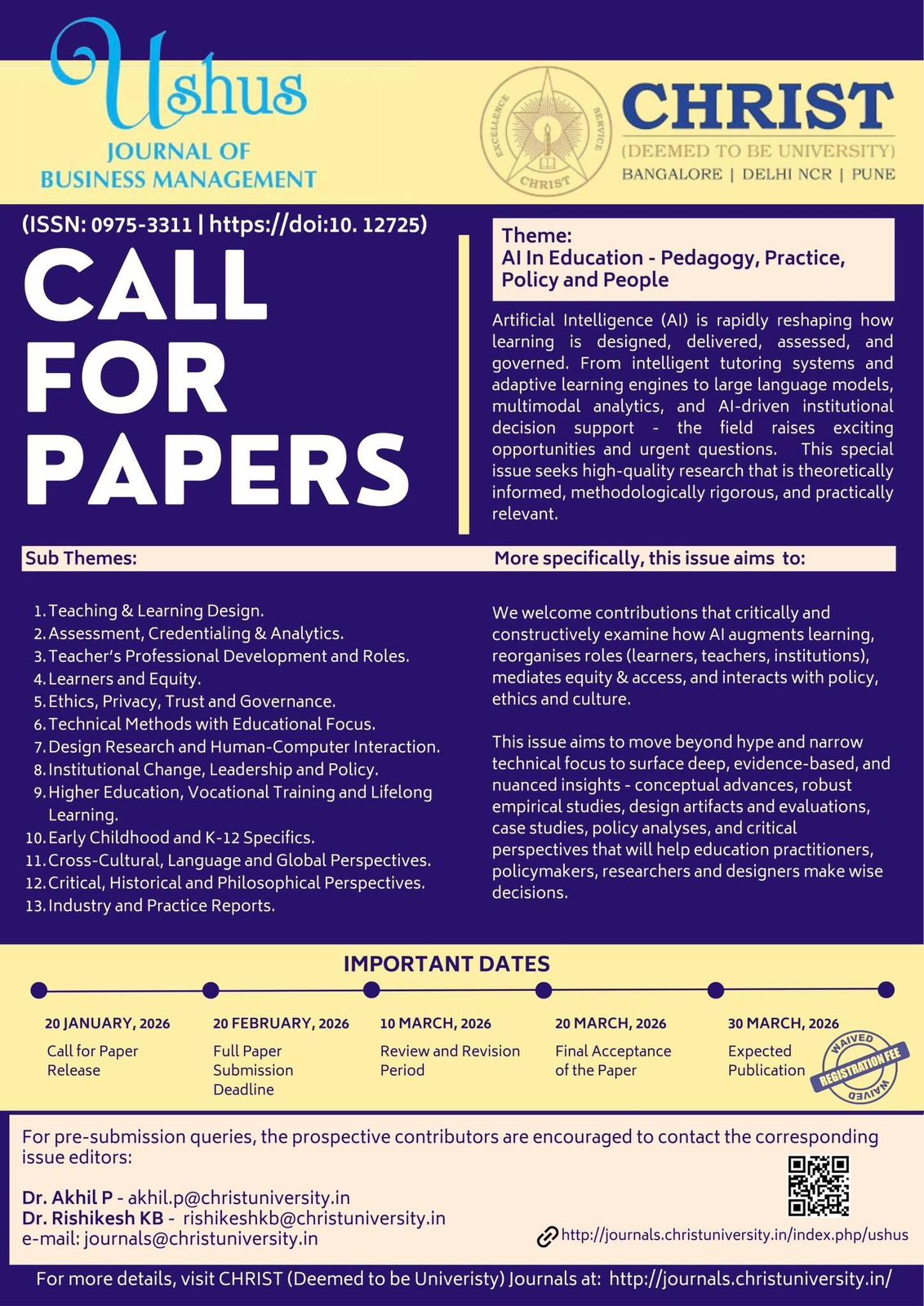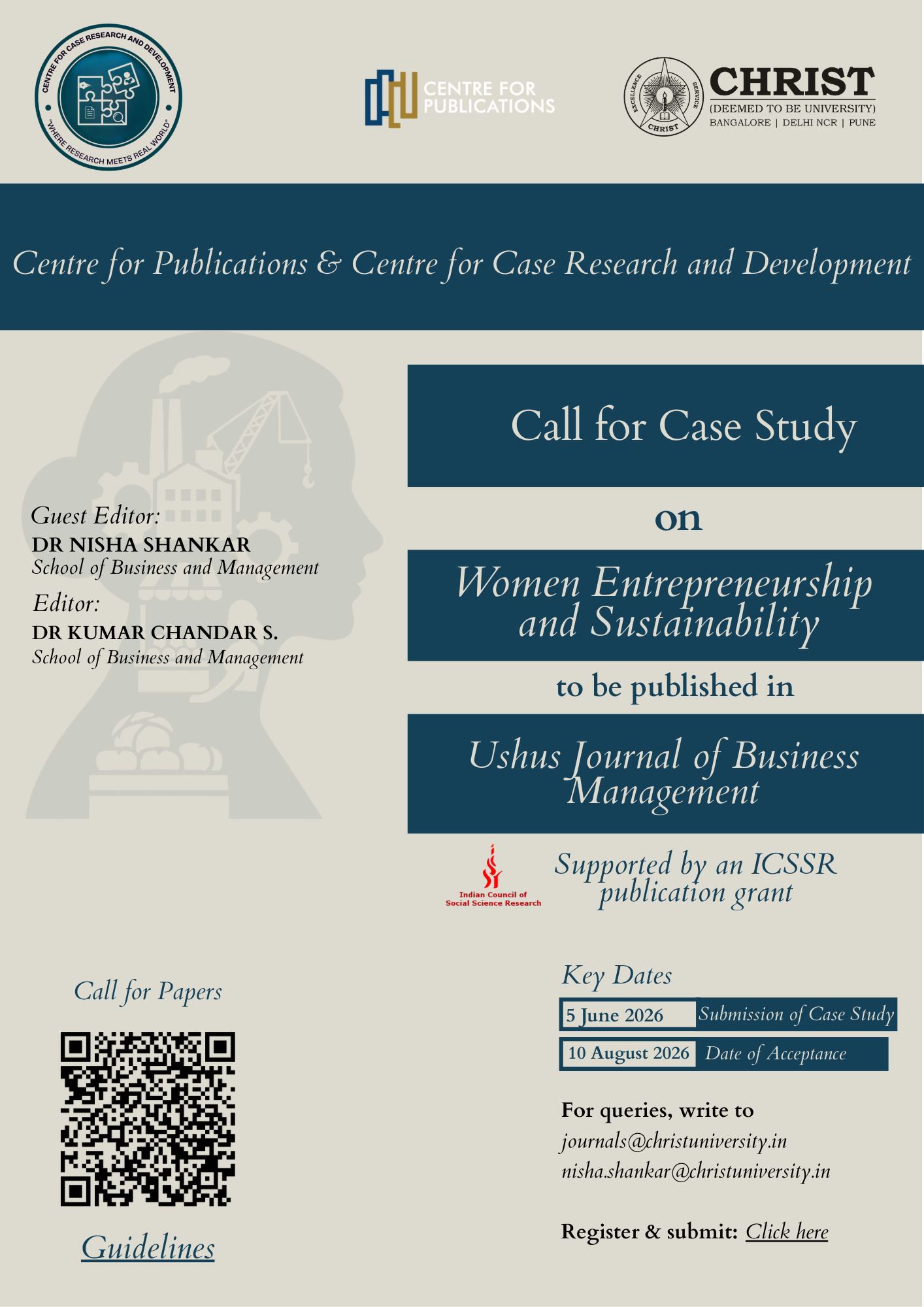Potential of Technology Startups to Bring Down Under- Employment among Engineering Students
DOI:
https://doi.org/10.12725/ujbm.42.2Abstract
For an effective use of India‟s youth population, better infrastructure, opportunities for development and employment must be provided. According to All India Council for Technical Education, more than 60% of eight lakh engineers graduating every year remain unemployed (2017). This is a loss of 20 lakh man days annually. This occurs not only due to the shortage of jobs but also as a result of the unemployability of students. The skills of engineers need to be used through start-ups that would provide an opportunity for innovation. This paper focusses on the problems faced by start-ups in engineering colleges and the opportunities for technology start-ups.
References
2. All India Council of Technical Education. (2017). “60% of engineering graduates unemployed”. Times of India. Retrieved from http://timesofindia.indiatimes.com as on 11/12/17.
3. Ansah, P. (2012). Entrepreneurship education, a panacea to graduate unemployment in Ghana. International journal of humanities and social science, 2(15). Retrieved from www.ijhssnet.com as on 7/12/17.
4. Fosu, R., & Richard, B.E. (2013). The Scottish University level entrepreneurship education initiative: Lessons for Ghana in dealing with graduate unemployment. Journal of Education and Practice, 4(24). Retrieved from www.iiste.org as on 2/12/17.
5. Founders Club-Education center. (2017).‟Exploring the Tech start-up space‟. Retrieved from http://foundersclub.com as on 5/12/17.
6. Judith, Z. (2013). Entrepreneurship education -An alternative route to alleviating unemployment and the influence of gender: An analysis of University level students entrepreneurial business ideas. International Journal Of Business Administration, 4(2).Retrieved from www.sciedu.ca/ijba.com as on 9/12/17.
7. NASSCOM. (2017). “India’s Tech start-up ecosystem: Rising and shining”. Newsline, 8(7). Retrieved from http://www.nasscom.in/ nasscom-newsletter/newsline as on 20/12/17.
8. NASSCOM. (2017). Technological disruptions and their transformational impact.Newsline, 8(8).Retrieved from htttp://www.nasscom.in/nasscom-newsletter/nasscom-newsline as on 2/12/17.
9. NASSCOM-Zinnov Report (2017). Indian start-up ecosystem-transferring the maturity cycle. Retrieved from www.nasscom.in/knowledge-center/publications as on 3/12/17.
10. Omogbolahan, S. (2012). Entrepreneurial education as a tool for reducing unemployment in Nigeria. Dissertation submitted to The School of Postgraduate studies, Babcock University, Nigeria for partial fulfilment of Degree of Masters in Public Management. Retrieved from http://s3.amazonaws.com/academia.edc.documents as on 4/12/17.
11. Sanjay, D., & Vivek, M. (2017). Education beyond marks and degrees. Science Reporter, 54(2), 37-40.
12. Thompson, D. (2013). Accelerating the growth of the next generation innovators. Ohio State Entrepreneurial Business Law Journal, 8(2). Retrieved from http:// respository.law.umichu.edu/articles as on 4/12/17.
Downloads
Published
How to Cite
Issue
Section
License
Copyright (c) 2019 Roopa Revathy R

This work is licensed under a Creative Commons Attribution-NonCommercial-NoDerivatives 4.0 International License.



